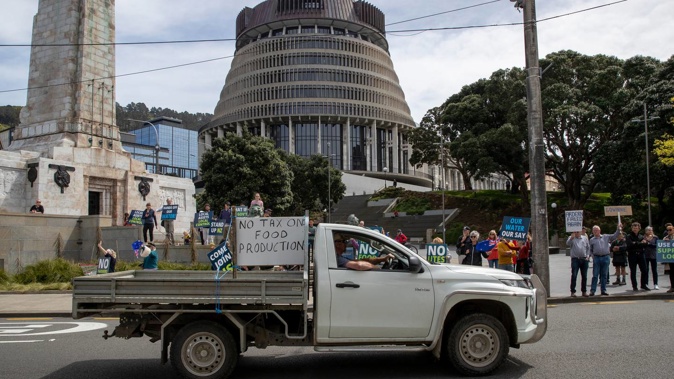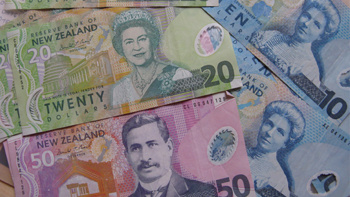
The Government considered exempting some diesel utes from its Clean Car Fee, often called the “ute tax”, when it changed the settings in May.
Officials also warned the changes to the policy announced earlier this year will only be temporary and will need to be reviewed again early next year.
The Government’s Clean Car scheme works by charging polluting cars a fee, and using revenue from those fees to offer a rebate on cleaner cars.
The scheme was reset in May, because the scheme was too successful, paying out far more in refunds than it collected in fees.
A supplementary analysis of the changes warned the deficit was so large the scheme would be forced to stop paying out rebates until the buffer of fees was replenished.
The policy has been attacked as a “ute tax”. The analysis suggests that criticism was getting to the Government and ministers considered options to exempt some utes.
Officials said that as there were “few low-emission utes available in New Zealand, Cabinet also considered two options for the treatment of the best performing diesel utes”.
The first example was to treat “efficient diesel utes differently from other high emission vehicles”
This would mean that low-emissions utes would get an exemption from the “ute tax” if registered before June 30, 2024.
The second option considered was to keep the current non-exempt status of utes, which is what Cabinet decided on in the end.
- Federated Farmers opposed to Ute Tax increasing
- Clean car scheme breaks EV records, but ‘Ute Tax’ may need to rise to pay for discounts
- National leader in a policy traffic jam over 'ute tax'
Officials warned this would hit rural communities.
“The increase in charges for utes would be expected to impact most on rural communities where the need for the functionality of utes is often great,” officials said.
Transport Minister Michael Wood had previously looked at loosening policy settings of the Clean Car Standard, an emissions standard, to allow for the fact that there were no “green” utes, for people to buy.
“Clean” utes are currently charged fees close to $2500.
The changes announced this year reduced the rebate for the cleanest vehicles from 8625 to $7015, and hiked the fees for the dirtiest vehicles from $5175 to $6900.
The Government also topped up a loan to Waka Kotahi NZ Transport Agency that helps administer the scheme.
Officials said the policy was driving a massive EV uptake - 62 per cent of surveyed EV owners said they purchased their vehicle “sooner than they would have otherwise because of the Clean Car Discount”.
Officials said the changes made in May would only be sufficient to resource the scheme until mid-2024. Early next year there will be another review of the fees and rebates, which will likely take effect in the middle of next year.
More than 100,000 rebates have been paid out since the scheme began in 2021. When he announced the changes earlier this year, Wood said it was reducing 230 per cent more emissions than expected.
“The scheme is facilitating an increase in the number of EVs entering the fleet we did not expect until 2027,” Wood said.
Take your Radio, Podcasts and Music with you









